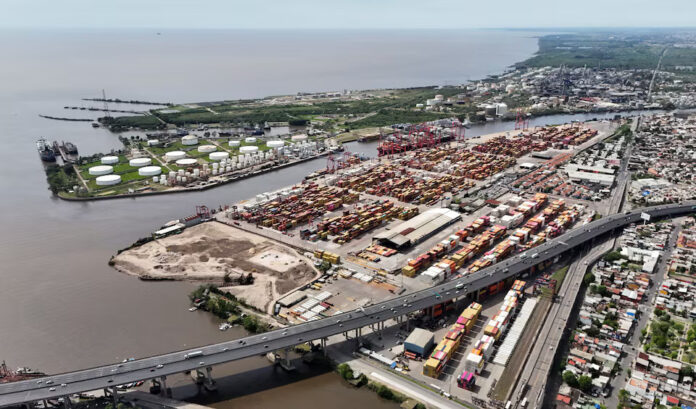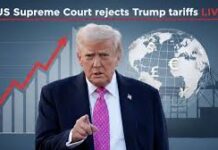
The United States announced on Thursday that it will remove tariffs on a range of food products and other imports from Ecuador, Argentina, Guatemala and El Salvador, under new framework agreements designed to expand market access for U.S. companies and lower consumer prices at home.
A senior Trump administration official said the move, expected to reduce the cost of items such as coffee and bananas, is part of a broader push to tackle the high cost of living, a political pressure point following recent Republican losses in key state elections.
The administration expects U.S. retailers to pass the savings directly to consumers.
Most of the agreements with the four Latin American countries are expected to be finalized within two weeks, with more deals possible before year-end.
U.S. Treasury Secretary Scott Bessent signaled on Wednesday that “substantial” announcements were imminent, reinforcing the administration’s focus on cheaper food imports.
The framework deals will preserve 10% tariffs on most goods from El Salvador, Guatemala and Argentina, where the U.S. enjoys modest trade surpluses, and a 15% tariff on Ecuadorian imports, where Washington faces a trade deficit.
However, tariffs will be lifted on products that are not grown, mined or produced in the U.S., such as bananas and coffee from Ecuador.
Officials said the agreements also mirror similar deals reached with several Asian countries in October.
They include commitments from partner nations to refrain from imposing digital services taxes on U.S. companies and the removal of foreign tariffs on U.S. agricultural and industrial exports.
“With all of these deals… we maintain the tariffs, we give some tariff relief on certain products, but at the same time, we open up foreign markets in ways that they have not been open before,” the senior official said.
The announcements come amid heightened domestic political pressure for price relief.
President Donald Trump has blamed lingering inflation and high consumer prices on policies enacted under former President Joe Biden, while economists point to Trump-era tariffs, still in effect on nearly all trading partners, as a significant contributing factor.
Recent Democratic victories in New Jersey, New York and Virginia, driven partly by voter frustration over living costs, have further sharpened the issue.
The New York Times reported Thursday that the administration is considering additional tariff exemptions on food products such as beef and citrus, including from countries not currently negotiating trade deals with Washington. The White House has not commented on the report.
Meanwhile, U.S. Secretary of State Marco Rubio met this week with Brazilian Foreign Minister Mauro Vieira to discuss a potential trade framework with Brazil, the world’s largest coffee exporter, whose shipments to the U.S. currently face heavy 50% tariffs.
Governments in the four Latin American countries welcomed Washington’s move. Argentina’s Foreign Minister Pablo Quirno said the deal would “create the conditions” for more U.S. investment, praising President Javier Milei’s role in securing the agreement.
El Salvador’s President Nayib Bukele hailed the announcement on social media, calling the U.S. a “friend,” while Guatemala’s President Bernardo Arevalo said the framework would make his country “more competitive and more attractive” for investment.
Ecuador’s government said the tariff removals would strengthen its export sector, especially in bananas, shrimp and oil.
U.S. officials also said trade talks with Switzerland and Taiwan were progressing positively, with prospects for additional agreements in the coming months as Washington continues its effort to recalibrate trade policy while tempering domestic price pressures.
Source: Reuters
Written By Rodney Mbua


















